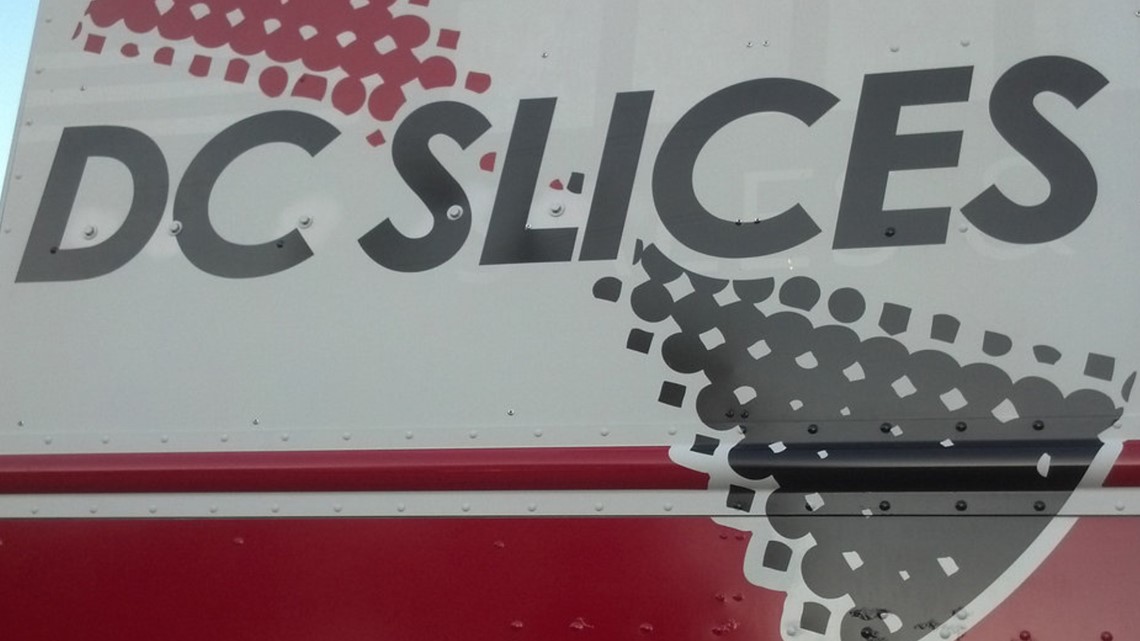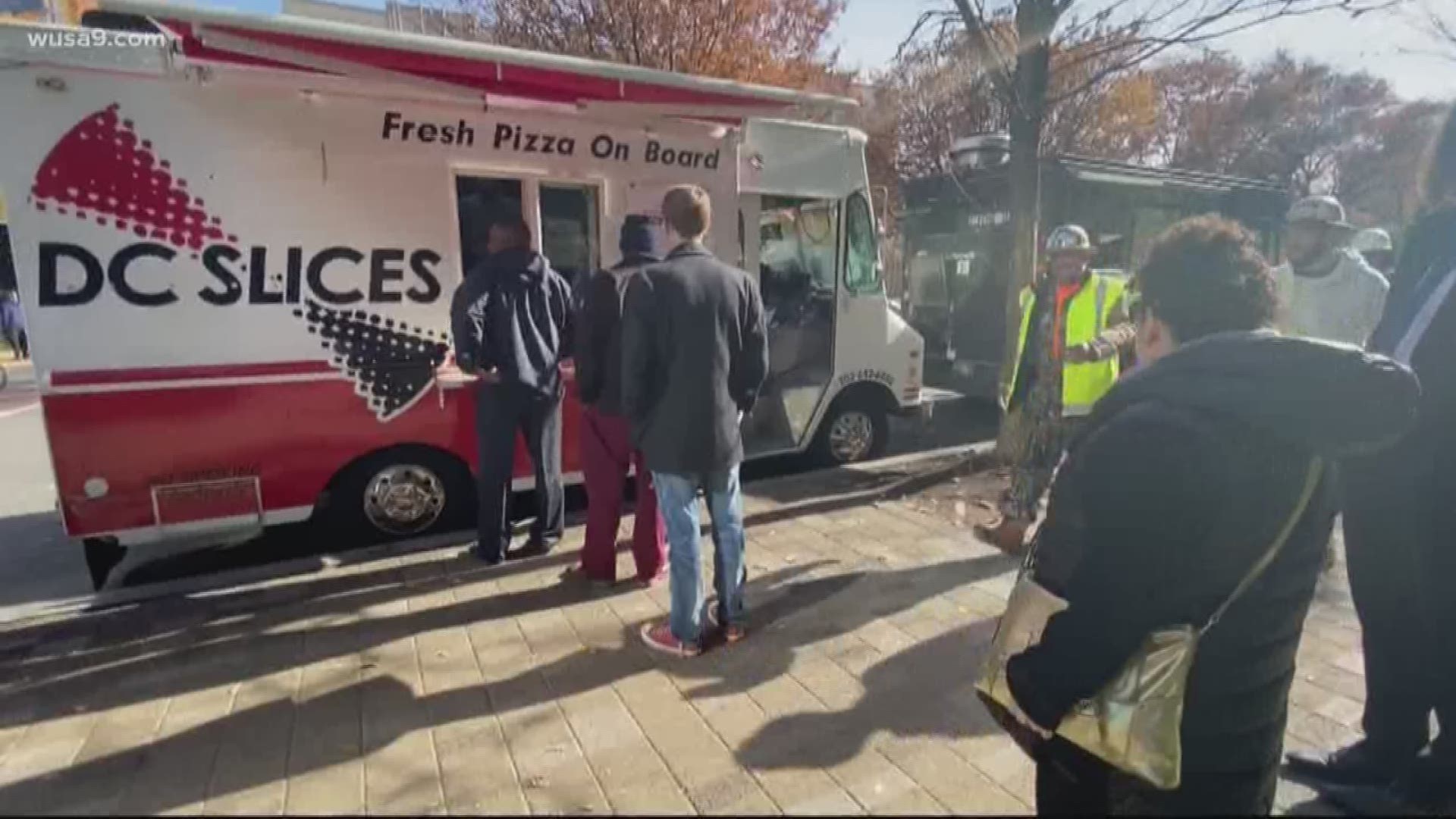WASHINGTON — Lines of credit -- you need them to do almost any kind of business. Want to buy a store front? Want new signage? Unless you have that cash on hand, you’re going to need a line of credit. For small business owners who are generally strapped for cash, getting that line of credit is no small feat.
"We’ve been in operation for nine years," Zach Graybill, co-owner of DC Slices, said.
DC Slices, the city's oldest food truck, has grown to a four-truck fleet in their nine years. Despite the growing operation and popularity of DC Slices, Graybill explained the company still doesn't have the necessary means to secure proper loans.
"That doesn’t mean anything to banks," Graybill said. "They want financial assets or some sort of territory or something. We just lack the means to secure a bank loan to grow to a store front."


Growing out of a food truck and into a storefront requires more than just cash on hand -- it requires credit or collateral to show to a bank.
If you’re not a small business owner, the best way to explain the property challenges that small businesses face is to think about what it is like to buy a home in D.C. after years of renting in one of the country’s most expensive cities.
"After nine years, people often ask 'Why don’t you have a brick-and-mortar store?' Graybill lamented. "I don’t own a house. Neither of my partners have a house. And that is one of the biggest ways to get a bank loan. It’s really the only reason."
Brick-and-mortar locations can stay open with longer hours and have a consistent presence in a neighborhood, while food trucks are on a rotating schedule for a limited period of time per day.
So where are food truck owners going to get the extra money? As Graybill explained it, their margins are getting tighter and tighter.
"[Running a food truck] is expensive, regulations and fees at events are rising," Graybill said. "There’s a lot of maintenance that happens. A lot of logistics, planning, operations that a restaurant just doesn’t have to deal with."
Graybill said he launched DC Slices as a food truck, rather than a brick-and-mortar store, due to the lower barrier to entry placed on food trucks. He has continued to run the business with his partners, but without investors.
Recently, the D.C. City Council held a hearing to listen to community feedback about two new bills meant to support small businesses in the District, introduced by Councilmember Charles Allen.
"One piece of legislation I've introduced is on how do we do a better job of getting local businesses into store fronts," Allen said. "We do that by things like a credit enhancement that they’ll be eligible for, so that they can actually compete on level footing with a national chain, as well as rent stabilization."
Allen said that rent subsidies will help those wanting brick-and-mortar shops, as rent is one of the biggest cost drivers.
Graybill was at the hearing to speak up for food trucks operating around D.C.
"One of the debates that was going on at that hearing the other day, was that a lot of land developers and property owners will get an application from a franchise business, or some national brand, someone who looks strong on paper," Graybill said. "And then they’ll also get an application from us."
Graybill believes that property owners are given more incentives to lease to big corporations and franchises, which leaves local small businesses in a tough place.
"They want us, but they’re more incentivized with these guys on paper for all of the financial reasons," he said.
Graybill walked WUSA9 from his food truck in NOMA to what used to be a vacant storefront down that street. He hoped that location would be DC Slice's first brick-and-mortar store.
"This was the ideal location," Graybill said, pointing to the property. "It was vacant for some time, and we just couldn’t get through the banking process fast enough."
So what does Graybill want the city to do going forward?
"I think a great idea would be if the city acts as a sort of guarantor for certain small businesses," he said.
Over the next few weeks, WUSA9 plans to speak with local business owners who are feeling the pains of trying to grow their businesses. If you are a small business owner and have any questions that we can help you get answers to, send us an email to TheQandA@wusa9.com

